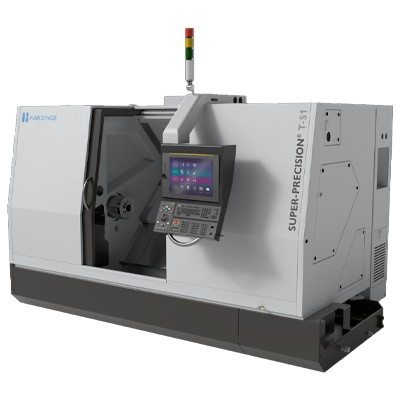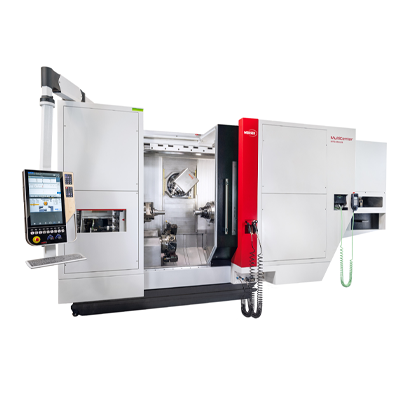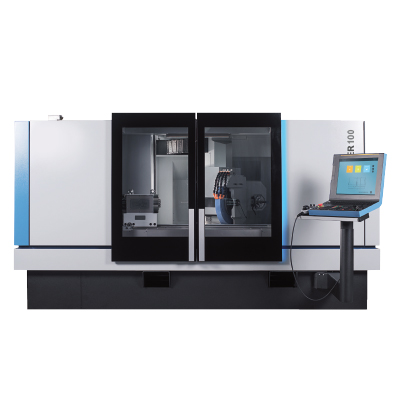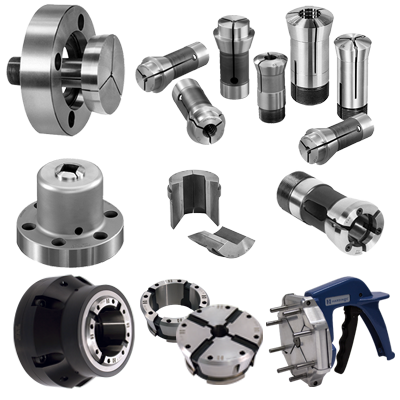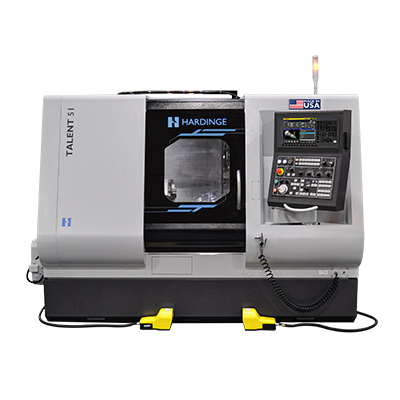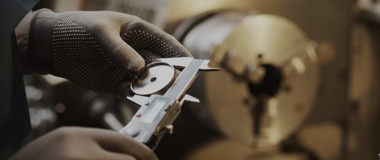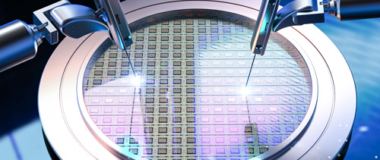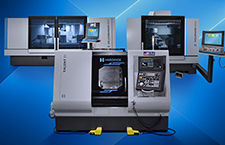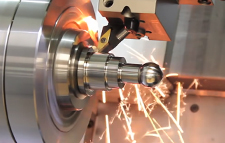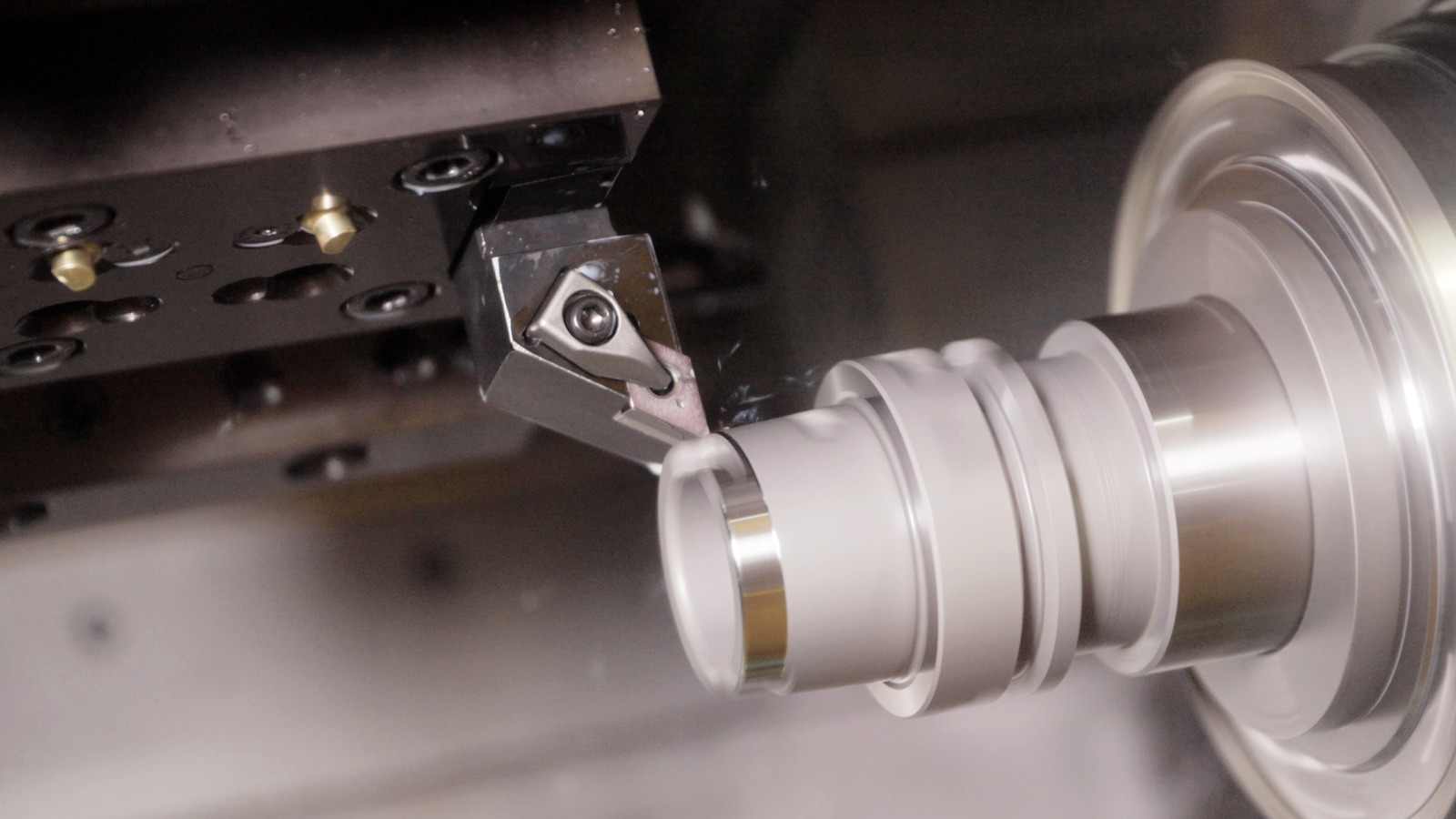User-oriented solution in hard turning and grinding
Author: Andrea Jäger
Maximum precision results from the perfect interaction of machine, tool and machining process. For the production of its high-precision tools, Japanese-Swiss company BIG KAISER therefore relies on a combination of hard turning and grinding on a Hardinge T51 SP MSY.
Hard turning has long since gained a leading place among manufacturing processes in industries such as the bearing and automotive industries, tool and die making, and tool manufacturing. In many machining cases, e.g. in ball bearing production or in tool technology, hard turning can save time and thus money compared to grinding. In the manufacturing of complex parts in a single set-up, the combination of hard turning and grinding operations in one machine results in a dimensional accuracy in the lower µ range, while ensuring high process reliability.
For precisely these reasons, precision tool manufacturer BIG KAISER had regarded hard turning as a suitable complement to grinding. Thus meeting the high demands on the quality of the products for which the name KAISER has stood since its founding in 1948 and which the merger with the Japanese company BIG Daishowa in 2015 has not changed.
Today, on 135,000 square meters of production space, around 900 employees in four countries ensure that the modular tool systems – 20,000 standard products and 12,000 special parts – are manufactured with consistently high precision. BIG KAISER’s machinery at the founding site in Rümlang near Zurich has long included a hard turning and grinding machine from a Swiss grinding machine manufacturer. This machine, however, had a strong focus on the grinding process.
The replacement investment for an aging lathe that became necessary in 2014, changed the focus to hard turning. Extended machining options were also on the wish list. “When purchasing a new machine, we always put the previous production processes to the test,” says BIG KAISER Production Manager Marcel Stettler, explaining the procedure for the machine search. “We are innovative with our products and this is reflected in our machining requirements.”
The list of machine builders producing high-precision hard turning machines is not very long. One of the leading companies in this field is Hardinge Inc. At an in-house exhibition organized by Pierre Moser, Managing Director of Swiss Hardinge representative PerfecBore, Marcel Stettler and Marco Kotz, Head of Manufacturing at BIG KAISER, made contact with Hardinge Product Manager Markus Günschmann. His presentation on hard turning on a Hardinge Super Precision machine immediately caught the attention of the BIG KAISER managers.
Weighing up the different machine concepts of all suppliers brought the realization that the Hardinge machines – and the T51 SP in particular – were better suited to BIG KAISER’s special requirements, especially in terms of repeatability, than the machines of the competitors. One purchase argument was the integration of the required circular milling into the machine. The additional challenge: the batch sizes at BIG KAISER vary from one piece to several hundred parts. An accuracy in diameter of 1 µm was also required. Hardinge GmbH in Krefeld specializes in challenges in the development of process-oriented solutions, focusing on the requirements of the customers. For that reason BIG KAISER decided in favor of the Hardinge T51SP in 2015.
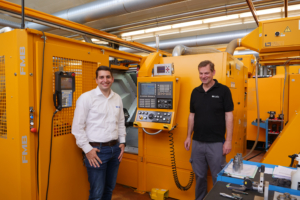
BIG Kaiser Production Manager Marcel Stettler and Production Manager Marco Kotz are satisfied with their choice of the T51 SP MSY…
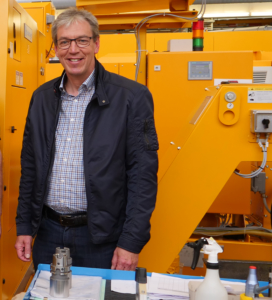
..as is Pierre Moser, Managing Director of the Swiss Hardinge representation
Stability and precision
Due to their rigidity and stability, the CNC high-precision lathes of the SP series are ideally suited for hard turning as well as for combined hard turning and grinding operations for the production of complex workpieces in one clamping. Measurement reports certify that the T- series has a continuous machine accuracy of 3 µm, workpiece roundness of 0.25 µm (T42) and 0.70 µm (T65), a repeatability (on all axes) of 0.76 µm and an achievable surface finish of better Ra 0.15 µm or Rz1.
A 45° cast-iron machine bed with Harcrete polymer concrete filling provides maximum vibration damping for higher surface finishes, longer tool life and safe process sequences. The Collet Ready spindle concept allows safe clamping of the workpiece directly in the spindle. The collet systems supported by the T-Series are not designed as adapter systems as is usually the case. This results in a much shorter overhang length and machining of the workpiece as close as possible to the spindle bearings. The resulting maximum rigidity of the spindle is the prerequisite for achieving the highest precision.
An independent Y-axis improves accuracy during milling and enables high-precision setting of the tool center for hard turning. Powerful main spindles with speeds of 6,000/5,000/4000 rpm and drive powers of 11/15/26 kW provide for high-precision turning.
A BMT 55 tool turret with 12 stations allows up to 24 stationary or 12 driven tools thanks to ½-indexing. The latter can be operated with a drive power of 5.5 kW, a torque of 42 Nm and speeds of up to 8,000 rpm.
Process reliability and surface quality
“Gaining confidence in the hard turning process was most important at the beginning. That had to come first.” says Production Manager Marco Kotz. With the commissioning of the T51 SP, previously proven machining processes were redefined and streamlined with the pleasing result of a reduction in throughput time. Within a short time, a large proportion of the parts suitable for this type of machining were already running on the new machine. “There are still parts and processes that are better suited for a grinding machine,” says Marco Kotz. “However, the results of Super Precision hard turning are so high-quality that a grinding process is not always necessary.” Time and again, the T51 SP reached its capacity limits.
The know-how gained in hard turning and the resulting stability of the manufacturing process finally led Marcel Stettler and Marco Kotz to consider purchasing a second hard turning machine. This time, an integrated grinding unit was to expand the range of machining possibilities, an option they had already taken into consideration for the first machine. Again, all the manufacturers in question were initially in play. “However, of all the machine builders we approached, only Hardinge guaranteed us process reliability,” says Marcel Stettler. “That was courageous and ultimately convinced us.” The new T51 SP MSY was ordered in December 2018 and delivered in the summer of 2019. A robot handling system for fully automated production was subsequently installed in October 2020.
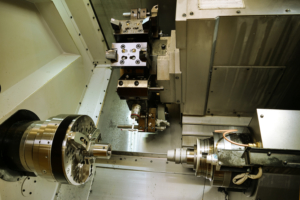
View into the machine room of the T51 SP MSY. Main and counter spindle, tool turret with grinding unit
For the combined turning/milling and grinding operations required in the complete machining of HSK tool holders, the new T51 SP MSY machine has been equipped with a grinding unit with driven tools developed for BIG KAISER, which has an inclined position. This inclined position is crucial for the finish grinding of taper and shoulder. The T51 SP MSY is ideally suited for the high demands on the precision of the workpiece with regard to roundness and diameter tolerance at the taper as well as the concentricity between the HSK taper and the inner bore.
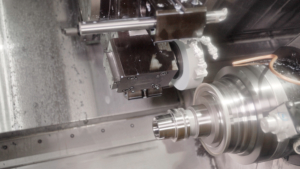
Dressing the grinding wheel for shoulder grinding
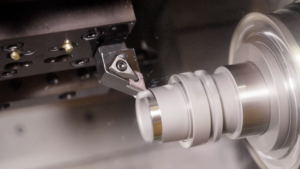
Hard turning of the outer and inner contours of the workpiece
“We are very satisfied with the overall performance of the T51 SP MSY,” Marco Kotz concludes. “Although only a limited range can be machined on the machine, it is all the more effective for that.” And Marcel Stettler adds: “The fact that Kellenberger, a grinding machine manufacturer, is part of the Hardinge Group means that we can expect further innovative solutions for the integration of grinding processes, for example in the dressing cycles.”
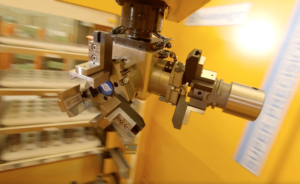
The T51 SP MSY is equipped with robot automation
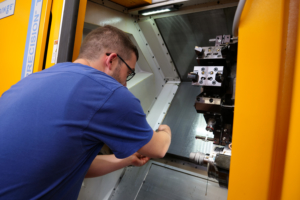
The large workspace is easily accessible

